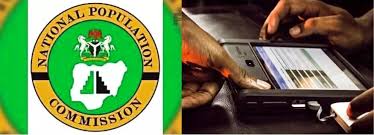As Nigeria prepares for its first fully biometric population and housing census, a public policy analyst, Adamu Saleh Sinbad, has described the exercise as a transformative step toward evidence-based governance and sustainable national development.
Sinbad, a researcher focused on governance and demographic change in Nigeria, said the upcoming digital census represents a significant shift from outdated manual methods to a more secure, efficient, and inclusive data system.
“This census is more than just a headcount. It is a critical pillar for implementing the Tinubu administration’s Renewed Hope Agenda,” he said.
According to him, integrating biometric identification—fingerprints and facial data—will help eliminate duplication and fraud, while Geographic Information Systems (GIS) will provide real-time mapping of households and communities.
“These technologies will deliver a credible dataset that enables targeted policymaking in education, healthcare, housing, and job creation,” he said.
He noted that other countries have embraced similar digital approaches to improve data integrity.
Citing India’s Aadhaar project, Ghana’s 2021 digital census, Kenya’s Huduma Namba, and Brazil’s biometric civil registration, Sinbad emphasised that secure, inclusive data systems are now globally recognised as essential for governance and service delivery.
He said that accurate demographic data is vital for driving development and ensuring government programmes reach the most vulnerable among Nigeria’s over 200 million population.
“From student loans to food assistance and social welfare, data ensures interventions are well-targeted. It also helps the private sector with market insights and aids security agencies in planning and disaster response,” he added.
Sinbad commended President Bola Ahmed Tinubu, for establishing a Presidential Committee chaired by the Minister of Budget and Economic Planning, Senator Abubakar Atiku Bagudu, to oversee census funding and implementation.
He also praised the National Population Commission (NPC) under the leadership of Hon. Nasir Isa Kwarra for significant preparatory achievements, including the completion of Enumeration Area Demarcation (EAD) in 772 out of 774 local government areas using satellite and geospatial tools.
However, he warned that technology alone would not ensure the census’s success without public buy-in.
“To achieve full coverage, the NPC must intensify advocacy efforts and drive public participation. The census should be viewed as a national civic responsibility,” he said.
Sinbad called on civil society, traditional rulers, religious leaders, youth groups, and the media to support awareness campaigns that highlight the census’s benefits.
“Infrastructure planning, poverty reduction, and equitable development depend on accurate data. This census is Nigeria’s chance to get it right,” he said.
He added that the success of the biometric census would provide the country with the tools to govern effectively and plan a more inclusive, data-driven future.
“The path to shared prosperity begins with knowing who we are, where we live, and what we need,” Sinbad said.











